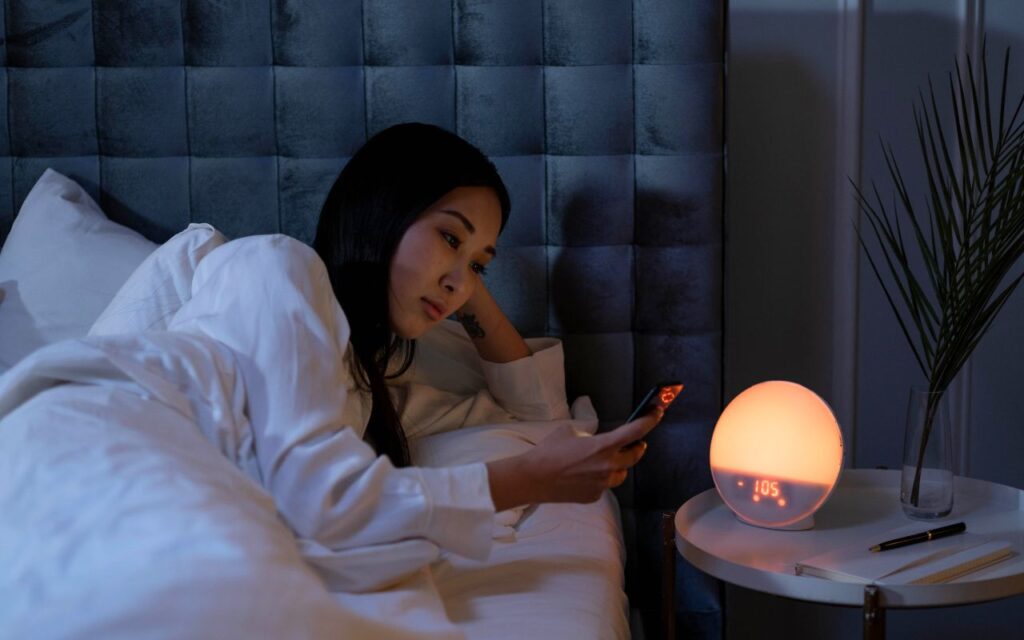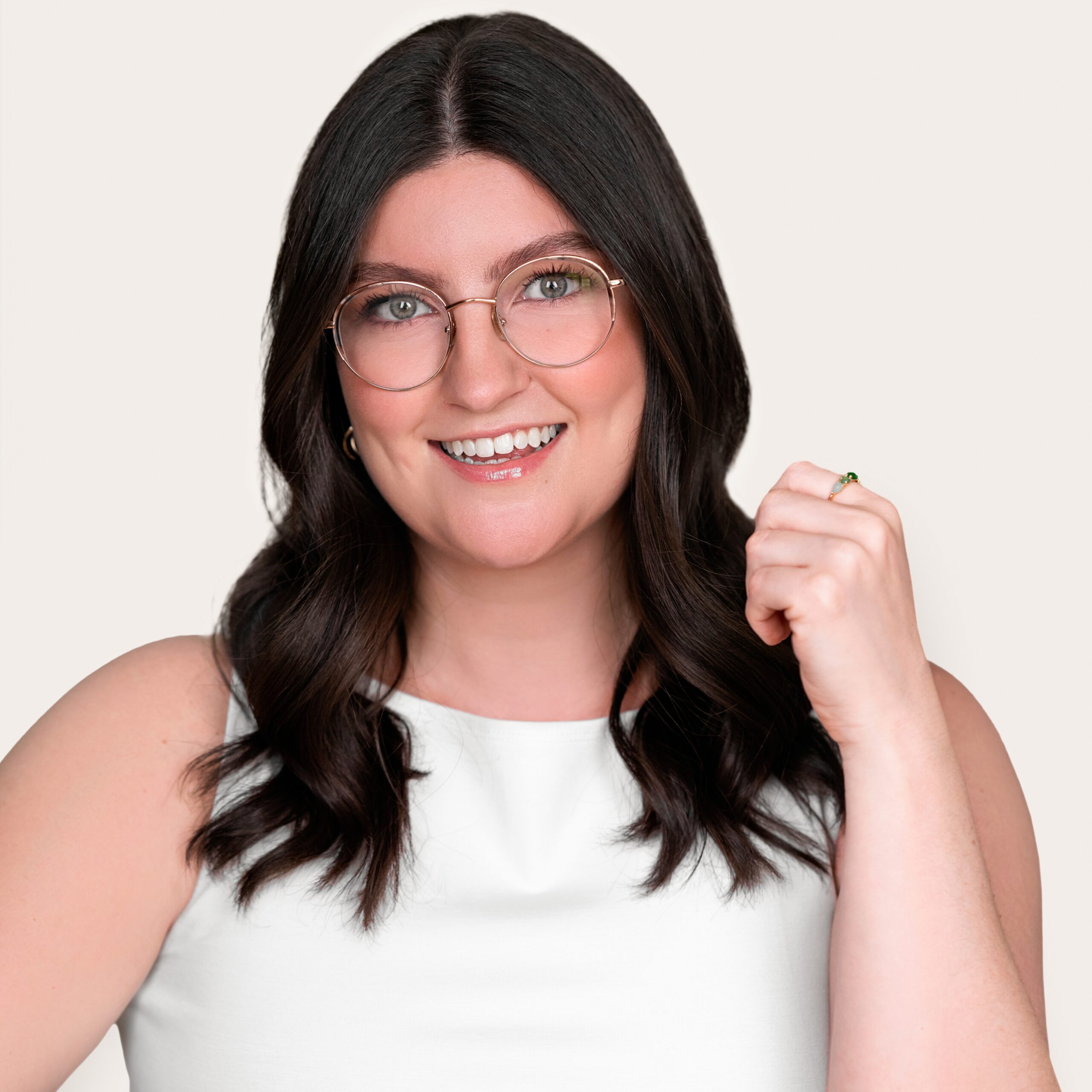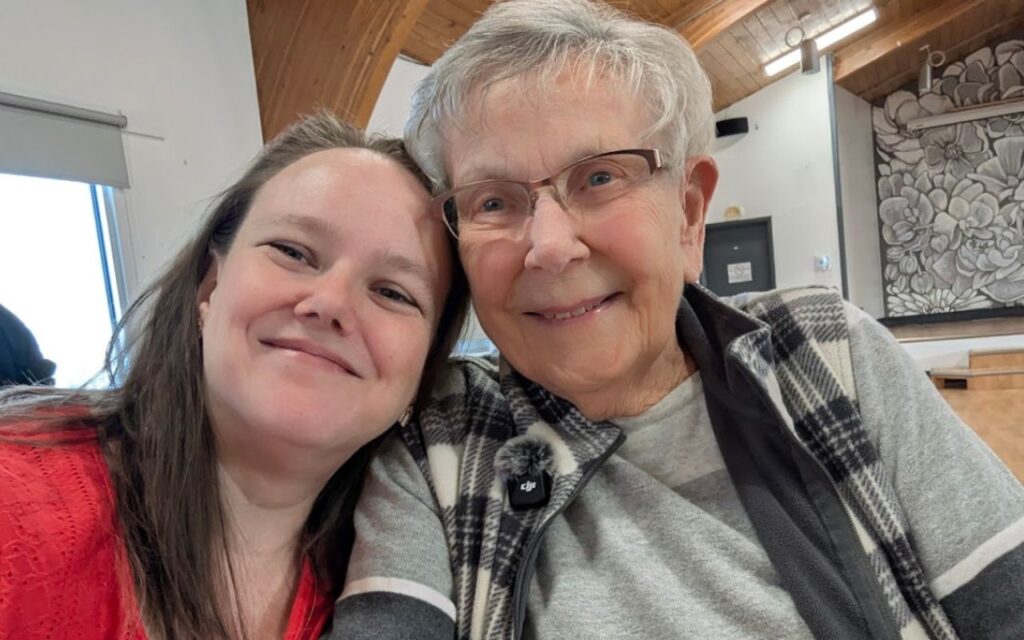
Sleep impacts every part of our lives: our mental health, our decision-making, our ability to cope with stress, and our overall well-being. And yet, for so many women, quality sleep remains frustratingly out of reach.
To help us understand why – and what we can do about it – we spoke to Dr. Rebecca Robillard, a leading expert in sleep science and mental health. She’s an associate professor at the University of Ottawa’s School of Psychology and a scientist at the Sleep Research Unit at The Royal’s Institute of Mental Health Research.
Dr. Robillard has dedicated her career to understanding the deep connections between sleep and mental wellness, and her work is shedding light on why women, in particular, struggle with sleep more than men – and how we can reclaim better rest.
THT: Let’s start by level-setting a bit. Do women actually need more sleep than men?
Dr. Robillard: Yeah, that’s a big question. It seems kind of simple, but it’s actually quite complex. First of all, everyone needs sleep – it’s essential, regardless of sex, gender, age, or anything else.
But what we do see consistently is that women tend to experience more sleep fragmentation and lower quality sleep across all ages. One hypothesis is that women might sleep more to make up for poor sleep quality.
THT: I want to talk about hormones. What’s going on during the menstrual cycle that impacts sleep?
Dr. Robillard: I’ll preface this by saying there’s still a lot we’re learning. When I started my PhD in sleep science – without saying how long ago that was – there was very little research on women’s sleep. We were seen as “too complicated” to study because of hormonal fluctuations, which makes scheduling and research design more complex. But thankfully, that’s changing.
So, about the menstrual cycle: we know that subjective sleep quality tends to decline during both the premenstrual and menstrual phases. Sleep duration doesn’t change much, but we see more disturbances – it takes longer to fall asleep, we wake up more often during the night. This is particularly noticeable in the late luteal phase, right before menstruation.
We also see changes in sleep architecture – like entering REM (dream) sleep more quickly, but spending less time in it. And some women report more unpleasant dreams during that time. Beyond hormones, physical symptoms like bloating, breast tenderness, headaches, cramps, and chronic pain can all affect sleep. In fact, 70 per cent of women report that their sleep is affected by menstrual symptoms alone.
THT: So what can women do if they’re not sleeping well?
Dr. Robillard: There are a few key things we recommend. First, try to keep a consistent sleep schedule – same bedtime and wake time, even on weekends. That can be hard with life demands, but it really helps.
One trick is to use an evening alarm – not just a morning one – to remind yourself to start winding down. A lot of us go from 100 to zero – answering emails or doing chores right up until bed – and that doesn’t give your body or mind any time to transition. Especially for women, who often carry more emotional and mental load, that wind-down period is crucial.
Physical activity also helps a lot. It strengthens your biological clock and promotes deep sleep. Plus, it helps regulate body temperature, which fluctuates during the menstrual cycle and affects sleep too.
And of course, make sure your sleep environment is comfortable – cool, dark, and quiet.
Now, those are helpful steps for many people, but if you have chronic sleep problems – like insomnia – you may need something more targeted. Women are more likely than men to have insomnia, and the first-line treatment isn’t medication. In fact, sleeping pills can affect women differently because we metabolize them more slowly, which can lead to side effects.
THT: I do hear a lot of women talk about taking melatonin or magnesium. Are they really effective?
Dr. Robillard: It’s a great question – and it’s a big topic. I’ll even throw alcohol and cannabis into the mix, because we’re seeing a growing number of people using both as sleep aids.
When people use alcohol specifically to fall asleep – not just socially – it’s not a sustainable solution. It may help you fall asleep faster initially, but it disrupts your sleep quality long term.
Cannabis use for sleep is now on par with prescription medication use in Canada, but we don’t yet have good evidence to guide how, when, or for whom it actually works. The type of cannabis – THC vs. CBD – makes a difference, and effects can vary widely. More research is urgently needed.
Melatonin is a bit different. It’s a hormone your body produces naturally, and it helps regulate your biological clock. It can be useful for people with circadian rhythm disorders – for example, if you fall asleep really late and wake up late, taking melatonin at the right time might help reset your internal clock.
But for general insomnia, the evidence just isn’t strong enough to recommend it as a go-to treatment. It’s also worth noting that melatonin, being a natural supplement, doesn’t get the same research funding as pharmaceutical drugs, so we just don’t have as much data.
And magnesium? Again, the evidence isn’t there yet to fully support it as an effective sleep aid.
So, where does this leave us? Well, you can sleep better – and you deserve to. So light that lavender candle, ditch the doomscrolling, and reclaim your rest. Your body and your brain will thank you!









